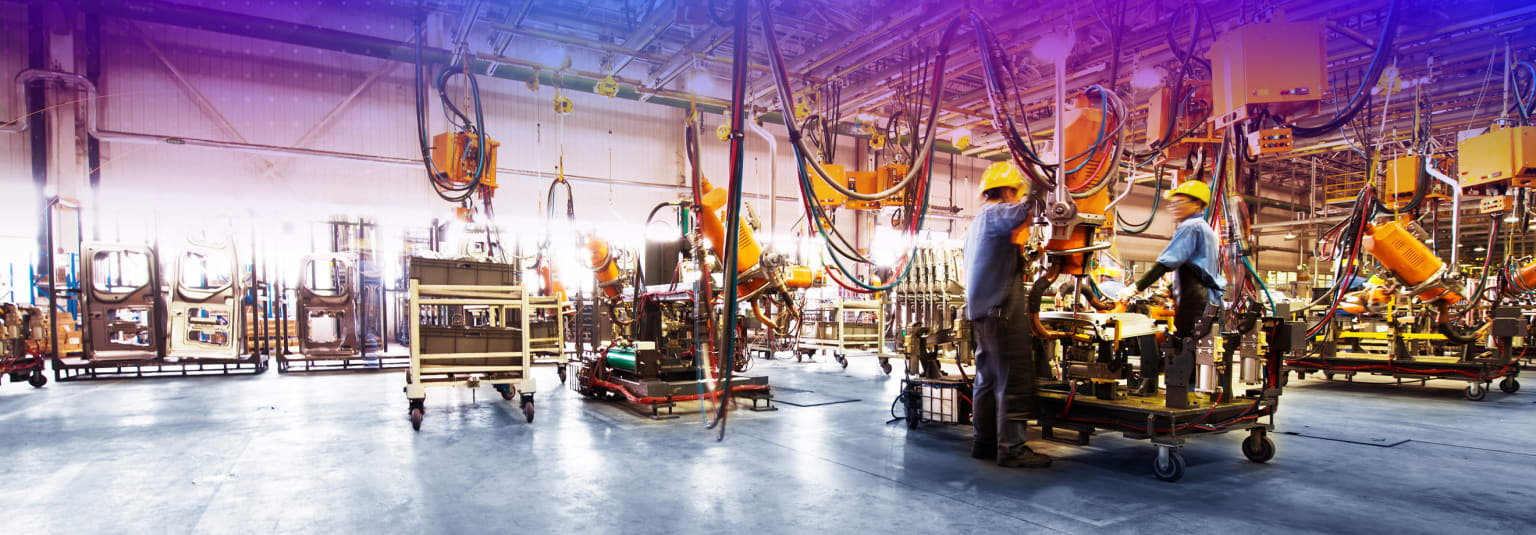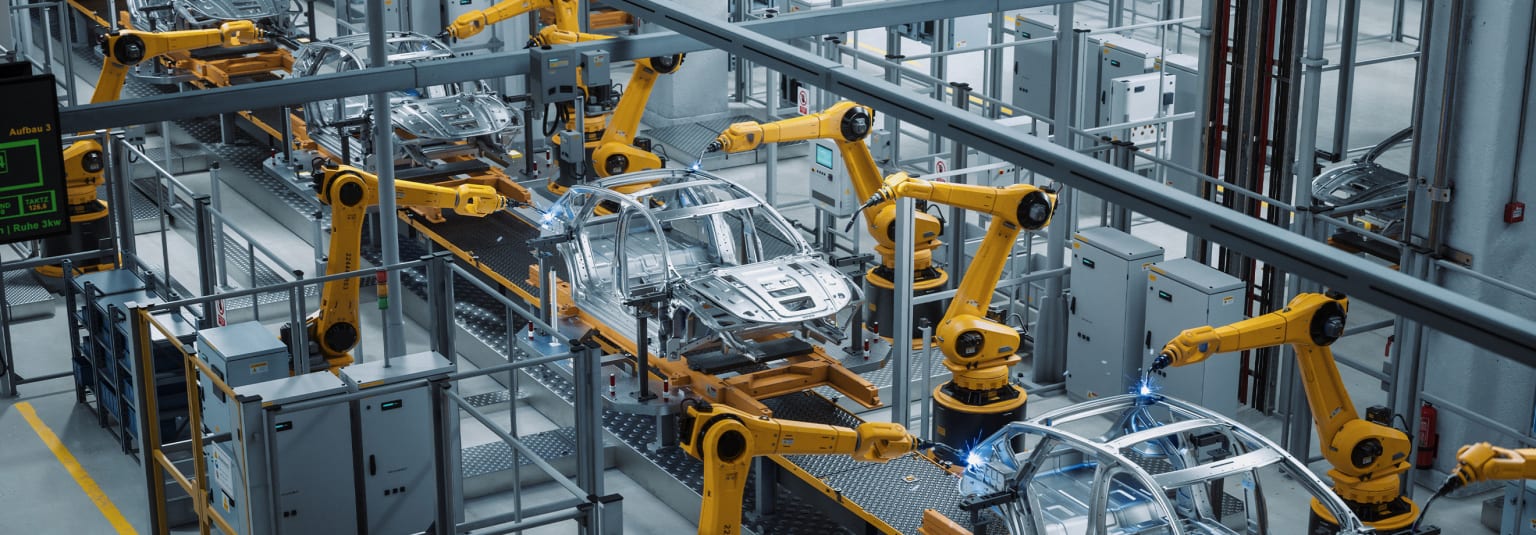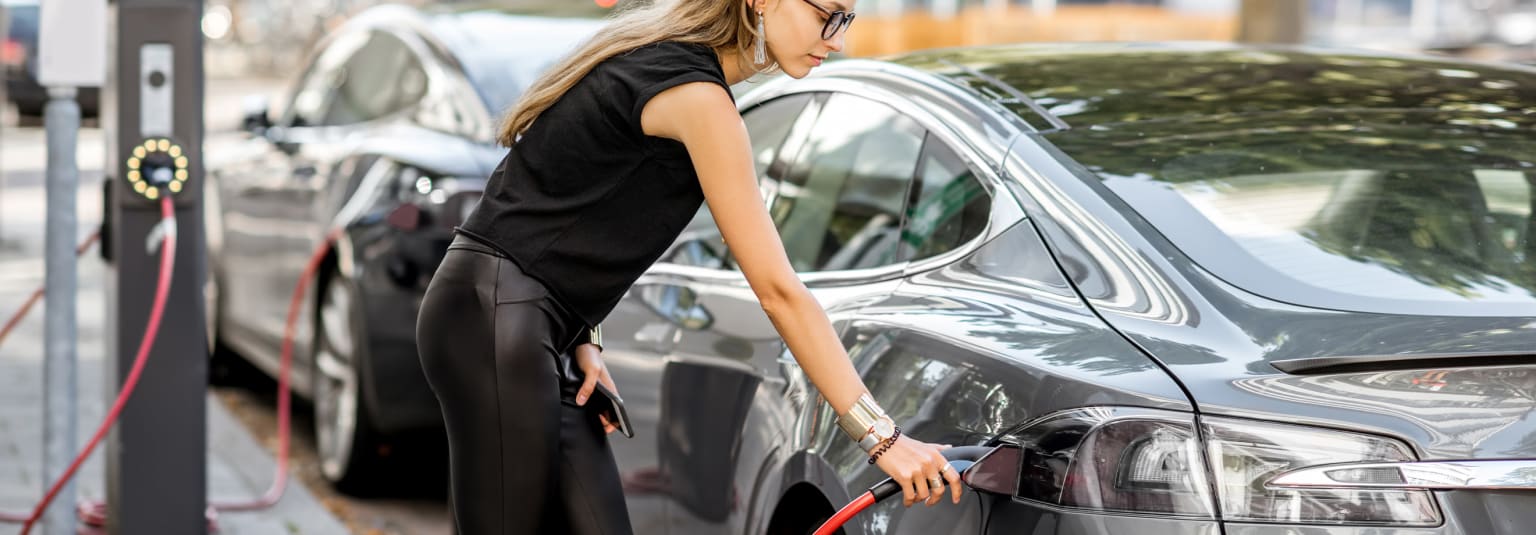
The EV Commitment to Sustainability: The Future of Vehicle Manufacturing
Demystifying the Electric Vehicle Manufacturing Process
The future is in green vehicle production, and the top automotive companies are on their way to transforming our world into one that’s more sustainable and environmentally friendly for everyone. In the last few years, worries have spread about the actual sustainability of electric vehicles over questions about how materials are sourced, causing much of the general public to collectively ask, “Are electric cars sustainable for the future?” Aschenbach Automotive Group is here to dispel any concerns about the overall sustainability of electric vehicles, focusing primarily on the goals of Ford, General Motors, Hyundai, and Stellantis in their transition to more sustainable electric vehicle manufacturing processes and how they plan to handle the recycling of electric vehicle batteries. Visit any of our dealerships for expert guidance on shopping for hybrid and electric vehicles today!

The Sustainability of the Automotive Industry and EV Manufacturing
The Ford Motor Company
The Ford Motor Company has been one of the top automotive manufacturing companies leading the forefront of sustainability initiatives by improving their electric vehicle manufacturing process and leading the way in developing new charging station infrastructure. At the number two spot for the most EV sales in America for the second year in a row, Ford plans to expand its hybrid and electric lineup by expanding its manufacturing plants to accommodate for prioritized production. By 2026, the Tennessee Electric Vehicle Center assembly plant at BlueOval City will begin developing Ford’s next generation of electric trucks, with the Ohio Assembly Plant in Avon Lake expanding to make room for the production of new electric commercial vehicles. Currently, nearly 25% of Ford’s F-150 lineup are hybrids, demonstrating that even in the pickup category customers will opt for the more sustainable choice when available.
Since 2017, the Ford Motor Company has drastically reduced Scope 1 and 2 global operations' greenhouse gas emissions by at least 47% and is estimated to hit their target goal of 76% by the end of 2035. In response to the demand for better battery charging station infrastructure globally, Ford has installed over 500,000 plugs for the BlueOval™ Charge Network across Europe, plus over 110,000 chargers across the BlueOval™ Charge Network in North America. Undoubtedly, Ford has its finger on the pulse of the future of electric vehicle manufacturing processes and will continue taking the world by storm through its initiatives.
General Motors (Chevrolet, Buick, GMC)
General Motors has a promising future with its current sustainability initiatives and goals, with new electric vehicles in development and partnerships with other companies to manage electric battery recycling processes. Currently, GM is partnered with Cirba Solutions to handle safe EV battery transport and assembly to improve waste management, diverting recyclable materials in electric batteries from pre-production, production, and end-of-life to give them new life and offset landfill pollution.
Recycle My Battery was created by GM to provide thorough guidance on properly disabling, removing, storing, and shipping used battery packs to ensure safe transport and overall improve the recycling supply chain. General Motors has been developing their battery packs to be easier to recycle, as a significant concern generally of EV batteries is that they’re difficult to dismantle, so simpler designs make the process a whole lot easier for recycling processors. With new vehicles being developed like the Buick Wildcat EV concept to the current GMC HUMMER EV Pickup and SUV models, GM is sure to help lead the way into a brighter future for the overall electric vehicle manufacturing process.
The Hyundai Motor Group
The Hyundai Motor Group is working hard to guarantee that the future of the automotive world is sustainable, revolutionizing its overall carbon footprint through a full transition to solar energy through partnerships and constructing vehicle plants dedicated to clean vehicle production. Recently, Hyundai signed a 15-year power purchase agreement to secure 147 MW of solar energy generation capacity to supply renewable energy to its United States manufacturing plants and enhance the sustainability of the electric vehicle manufacturing process.
During Q4 at the end of 2024, Hyundai is projected to start producing EVs at the Hyundai Motor Group Metaplant America in Georgia, its first dedicated EV and hydrogen-powered automotive manufacturing plant. This new EV manufacturing plant will be entirely optimized by artificial intelligence, existing as a human-first environment enhanced by robotics to improve and streamline order collection, procurement, logistics, and production. Additionally, the logistics affiliate Hyundai Glovis invested in ER, a Korean firm specializing in electric battery recycling, to assist in extracting and recycling the mineral components found in electric batteries. Hyundai Glovis also developed a patented container in 2021 to collect and transport used EV batteries, and recently has been certified to expand transport into the air via the International Air Transport Association.
Stellantis (Chrysler, Dodge, Jeep, Ram)
Stellantis has all eyes on the future of our planet thanks to its mass production and distribution of electric vehicles, with over 30 new electric vehicle models introduced during 2023 across all brands, and up to 18 new models coming to market by the end of 2024. During 2023, Stellantis created the SUSTAINera Circular Economy Hub in Mirafiori, Italy, prioritizing focus on remanufacturing, reconditioning, and dismantling of engines, gearboxes, and EVs. They recycled over two million parts throughout 2023, diverted tons of waste from the landfill, and transitioned manufacturing to 58% decarbonized electricity.
With its joint venture partnership with Orano, Stellantis has a promising future in recycling cobalt, nickel, and lithium components from electric vehicle batteries across North America and Europe, sure to make the entire electric vehicle manufacturing process cleaner and aligned with Circular Economy goals. As for more specific vehicle brands, Dodge has introduced the 2024 Dodge Hornet Hybrid, with the 2024 Dodge Charger Daytona soon to be released as its first EV model. Ram is following behind, with the 2024 Ram Promaster EV servicing delivery routes across the country, the cargo model on the way, and the Ram 1500 REV and Ram 1500 Ramcharger coming soon. Jeep is also developing the Jeep Recon and Wagoneer “S”, slated for production and distribution in 2025, and Chrysler is currently conceptualizing the futuristic Chrysler Halcyon EV.

Scaling A Sustainable Future
The future is looking greener than ever, continuing to brighten as sustainable development and Circular Economy goals are met and exceeded into the future. As the electric vehicle manufacturing processes improve across all of the top companies, the public can feel optimistic that the EV revolution continues to rage with strength as it gradually begins to take over our world. At Aschenbach Automotive Group, we do our best to stay at the forefront of exploring this auspicious future of our planet and the automotive industry, helping you stay informed and ahead of the curve regarding this exciting development. Visit any of our dealerships to start your electric vehicle journey today!